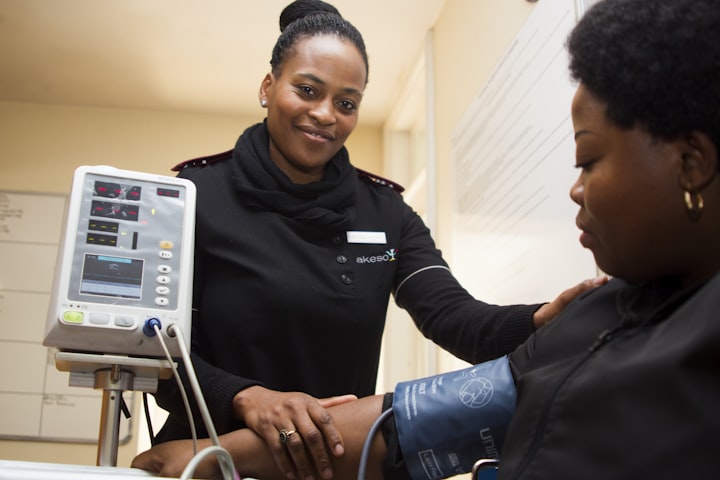Diabetes and Your Life: A Guide to Understanding and Managing the Disease
Diabetes is a chronic condition that affects the way the body handles sugar. There are three types of diabetes: type 1, type 2, and gestational diabetes.

What is diabetes?
Diabetes is a chronic condition that affects the way the body handles sugar. There are three types of diabetes: type 1, type 2, and gestational diabetes.
Type 1 diabetes is an autoimmune disease in which the body’s immune system attacks the insulin-producing cells in the pancreas. This causes the body to produce little or no insulin, a hormone that allows the body to use sugar for energy. People with type 1 diabetes must take insulin injections to control their blood sugar levels.
Type 2 diabetes is the most common type of diabetes. It occurs when the body doesn’t use insulin properly, either because the body can’t make enough insulin or because the cells don’t respond to insulin properly. People with type 2 diabetes may need to take oral diabetes medications or insulin injections to control their blood sugar levels.
Gestational diabetes is a type of diabetes that occurs during pregnancy. It is caused by the hormones of pregnancy that interfere with the body’s ability to use insulin. Gestational diabetes usually goes away after the baby is born, but women who have had gestational diabetes are at increased risk for developing type 2 diabetes later in life.

What are the different types of diabetes?
There are three types of diabetes: type 1, type 2, and gestational diabetes.
Type 1 diabetes is an autoimmune disease in which the body’s immune system attacks the insulin-producing cells in the pancreas. This causes the body to produce little or no insulin, a hormone that allows the body to use sugar for energy. People with type 1 diabetes must take insulin injections to control their blood sugar levels.
Type 2 diabetes is the most common type of diabetes. It occurs when the body doesn’t use insulin properly, either because the body can’t make enough insulin or because the cells don’t respond to insulin properly. People with type 2 diabetes may need to take oral diabetes medications or insulin injections to control their blood sugar levels.
Gestational diabetes is a type of diabetes that occurs during pregnancy. It is caused by the hormones of pregnancy that interfere with the body’s ability to use insulin. Gestational diabetes usually goes away after the baby is born, but women who have had gestational diabetes are at increased risk for developing type 2 diabetes later in life.
What are the risk factors for diabetes?
Some of the risk factors for diabetes include:
-Obesity
-High blood pressure
-High cholesterol
-A family history of diabetes
-Smoking
-A lack of physical activity
-Complications during pregnancy, such as gestational diabetes

What are the symptoms of diabetes
There are a few common symptoms of diabetes, including feeling very thirsty, going to the bathroom a lot, feeling very tired, and having cuts or bruises that are slow to heal. However, some people with diabetes don't have any symptoms at all.
How is diabetes diagnosed?
If you think you might have diabetes, you can get a blood test to find out for sure. The test measures the level of sugar in your blood.
How is diabetes treated?
There is no one-size-fits-all answer to this question, because the treatment for diabetes will vary depending on how severe the condition is. However, common treatments for diabetes include taking medication, making lifestyle changes, and sometimes having surgery.

How can diabetes be managed?
Managing diabetes can be tricky, but it's important to do everything you can to keep your blood sugar levels under control. This might include following a specific diet, taking medication, and exercising regularly.
What are the complications of diabetes?
Diabetes is a complex disease that can affect different parts of the body. The most common complications include:
• Heart disease and stroke • Eye problems, such as diabetic retinopathy • Nerve damage, which can cause problems with sensation, movement, and digestion • Foot problems, such as ulcers and amputation • Kidney disease • Sexual problems, such as decreased sexual desire and erectile dysfunction
How can diabetes be prevented?
Diabetes can be prevented by making healthy lifestyle choices:
• Eating a healthy diet • Exercising regularly • Maintaining a healthy weight
People with diabetes can also reduce their risk of complications by:
• Checking their blood sugar regularly • Taking their medications as prescribed • Getting regular check-ups from their health care team
What resources are available for people with diabetes?
There are many resources available for people with diabetes, including:
• Diabetes education programs • Diabetes support groups • Online resources, such as diabetes forums and blogs
About the Creator
Alain Saamego
Software engineer , Writer and Content Strategist at Selfgrow.co.uk
I'm a technology enthusiast, and I love learning about upcoming technologies. I also enjoy teaching and answering questions about new technologies.






Comments
There are no comments for this story
Be the first to respond and start the conversation.